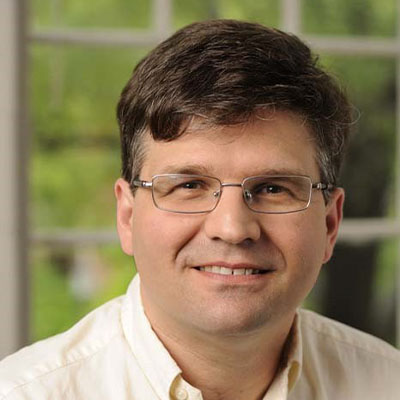
Pablo A. Iglesias
Pablo Iglesias, the Edward J. Schaefer Professor in electrical and computer engineering, uses computational techniques grounded in control and information theory to study biological signal transduction pathways.
Iglesias’ research investigates how cells interpret directional cues to guide cell motion, the regulatory mechanisms that control cell division, and the sensing and actuation that enable cells to maintain lipid homeostasis. His computational models largely explore two stages of cell division – mitotic spindle formation and cytokinesis – and how cells direct motion. Applications of his work include engineering “killer cells” that can engulf pathogens with high efficiency, analyzing the implications of cell morphology, and predicting behavioral changes in primates through brainwave modeling.
He has authored more than 150 research articles, as well as two books: Minimum Entropy Control for Time-Varying Systems (Birkhäuser) and Control Theory and Systems Biology (MIT Press). Iglesias is a member of the Institute of Electrical and Electronics Engineers (IEEE), which named him a distinguished lecturer in 2006 and a Fellow in 2017 for his contributions to control theory and systems biology. He is the recipient of Johns Hopkins’ George E. Owen Teaching Award, Science Spectrum Magazine’s “Science Spectrum Trailblazer” award, and the Charles E. Ives Best Paper Award for the Journal of Imaging Technology. He has held visiting appointments at Lund University in Sweden, Weizmann Institute of Science in Israel, the California Institute of Technology, and the Max Planck Institute for the Physics of Complex of Systems, in Dresden, Germany.
Iglesias received his BS degree in engineering science from the University of Toronto in 1987 and his PhD in control engineering from the University of Cambridge in 1991. In addition to his primary appointment in the Department of Electrical and Computer Engineering, he holds joint appointments in the Department of Applied Mathematics and Statistics and the departments of Cell Biology and Biomedical Engineering at the School of Medicine.


